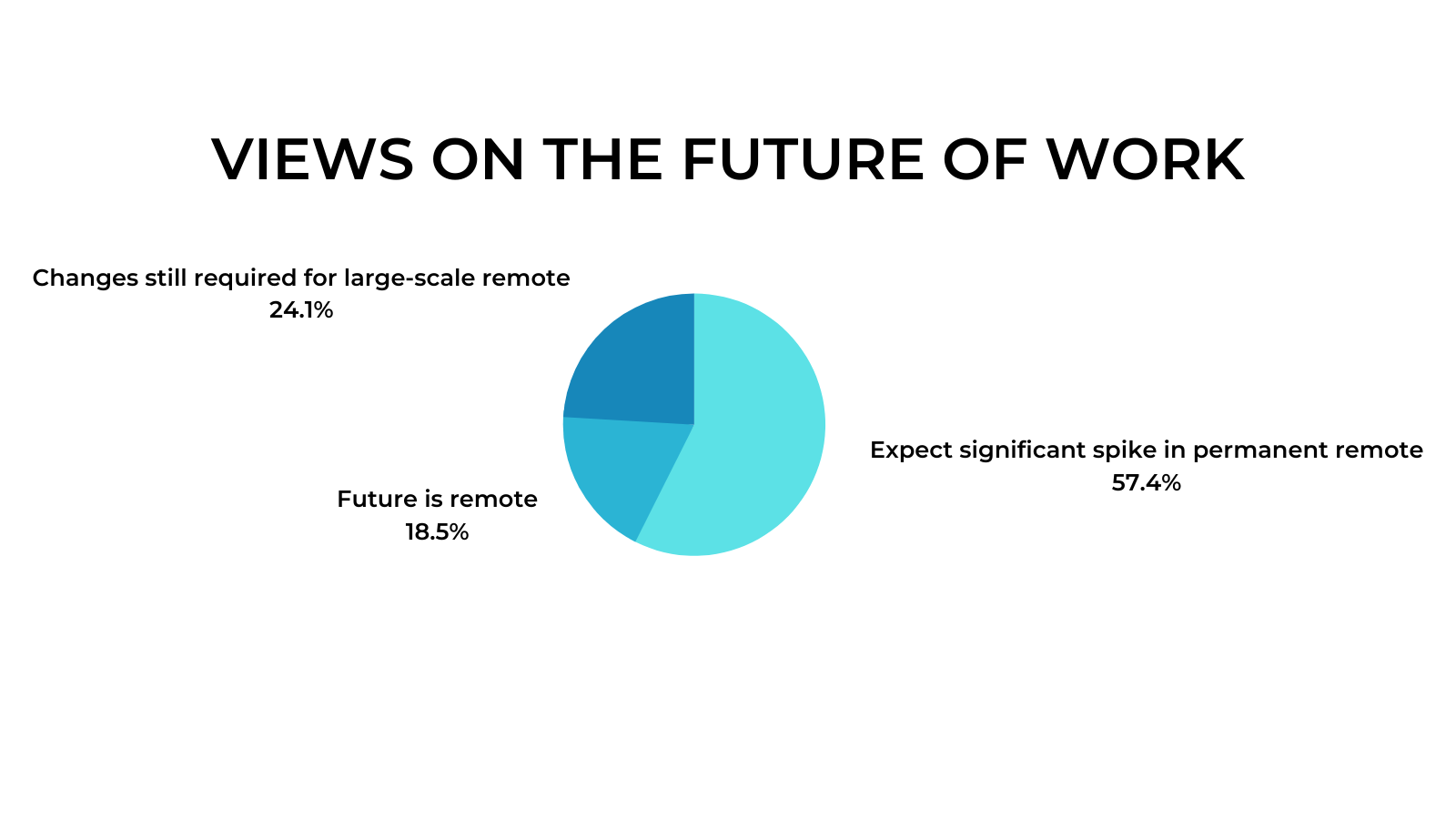I interviewed 54 remote workers with combined remote work experience of 375 years - Stats & observations
Written by: Hrishikesh Pardeshi, Founder at Flexiple, buildd & Remote Tools.
Last updated: Jan 19, 2023
I have interviewed 54 remote workers & leaders over last 2 years with a combined remote work experience of 375 years.
This is a detailed post about the most interesting stats, observations & learnings across all those interviews/stories. You can read all the interviews here.
Who are these individuals?
1) There's a healthy gender diversity: 59.3% men & 40.7% women.
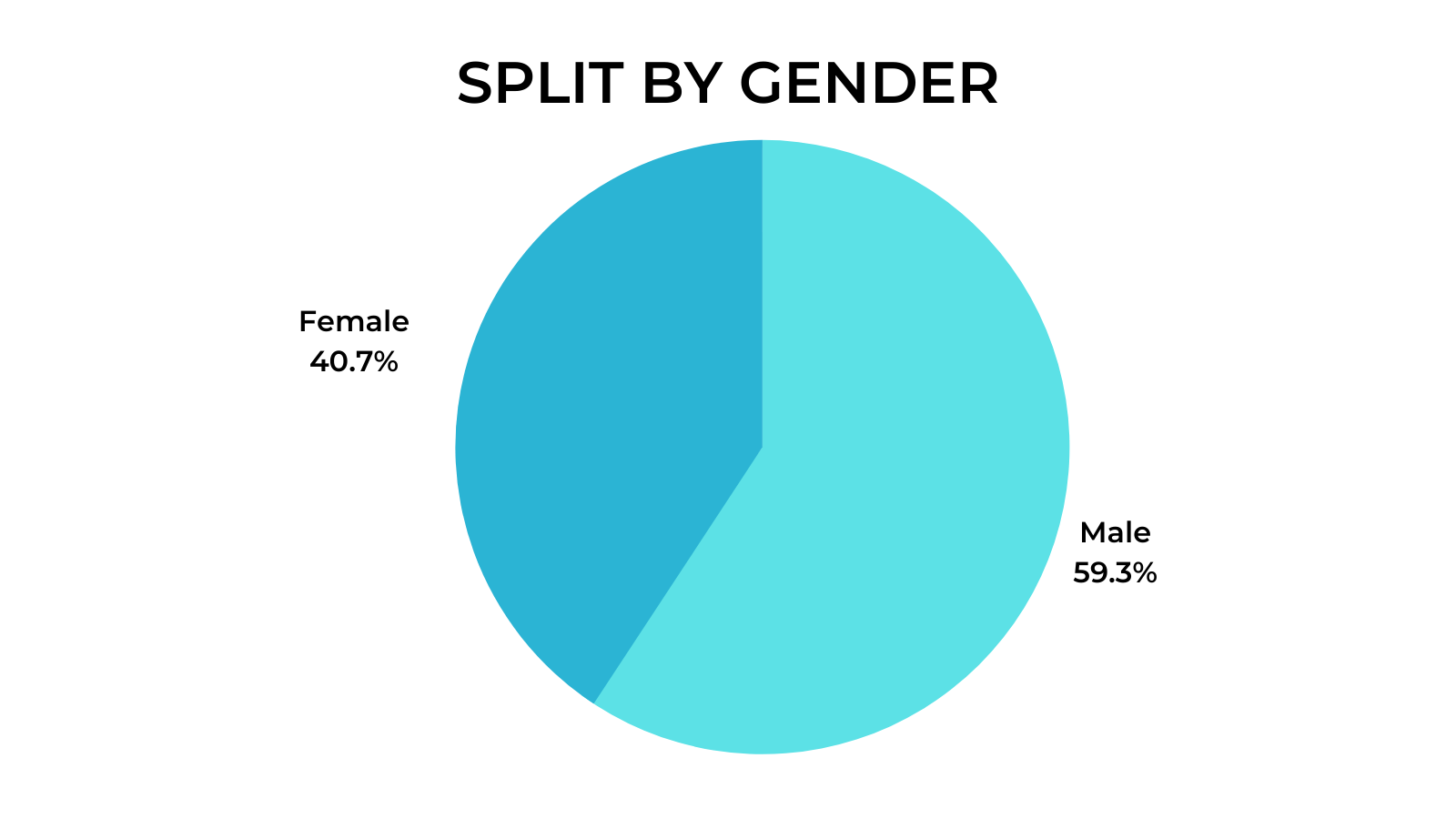
2) Most individuals belonged to North America (53.7%) & Europe (31.5%).

3) 40% of individuals do some form of professional writing (books, freelance writing, company blog etc.) and an equal number regularly do software development.
Writing, Software Development, Entrepreneurship & Marketing are the most common functions across all of these remote workers.

4) 27.8% individuals have kids & 14.8% have pets (Dog being the most common pet).
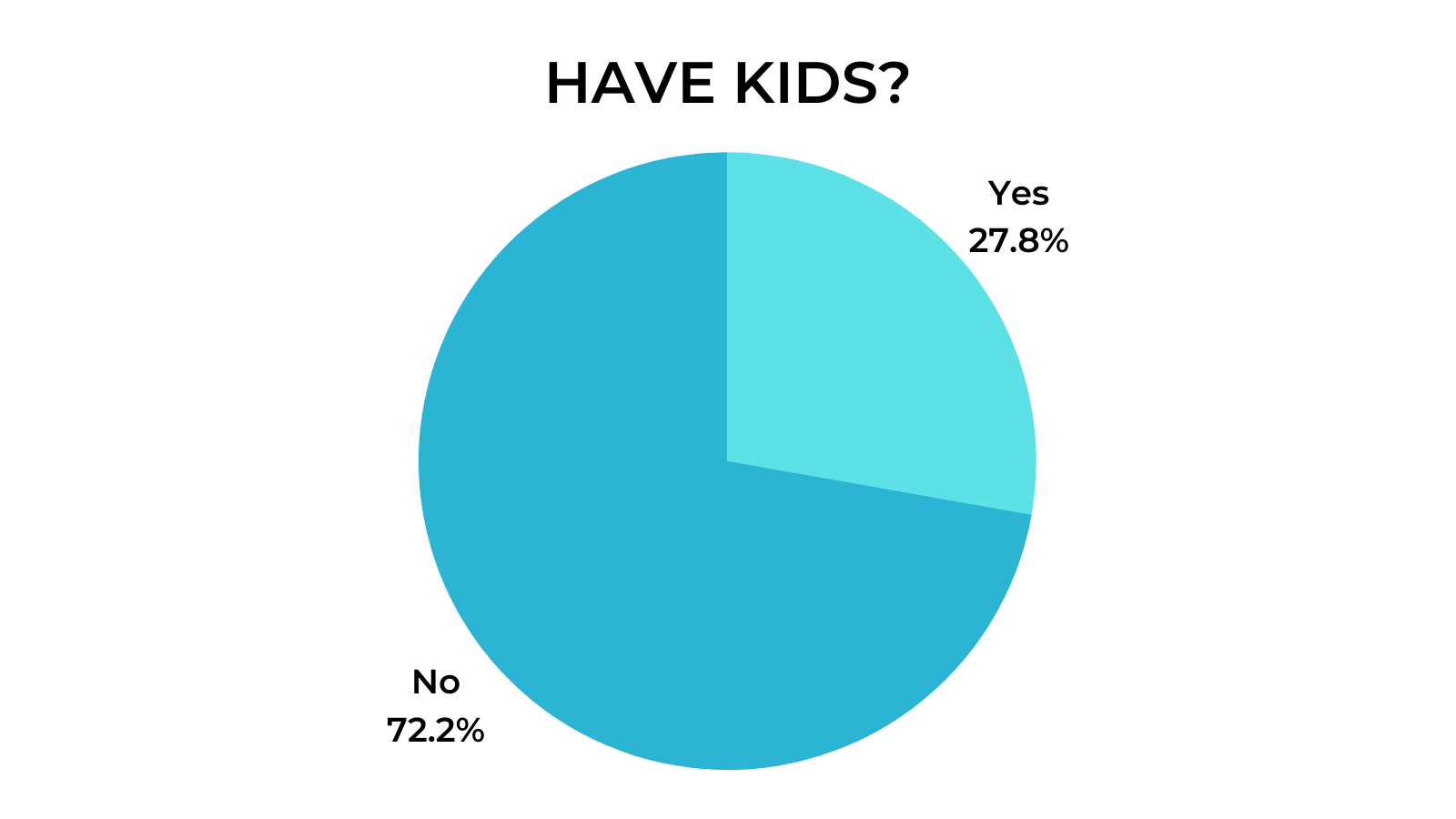
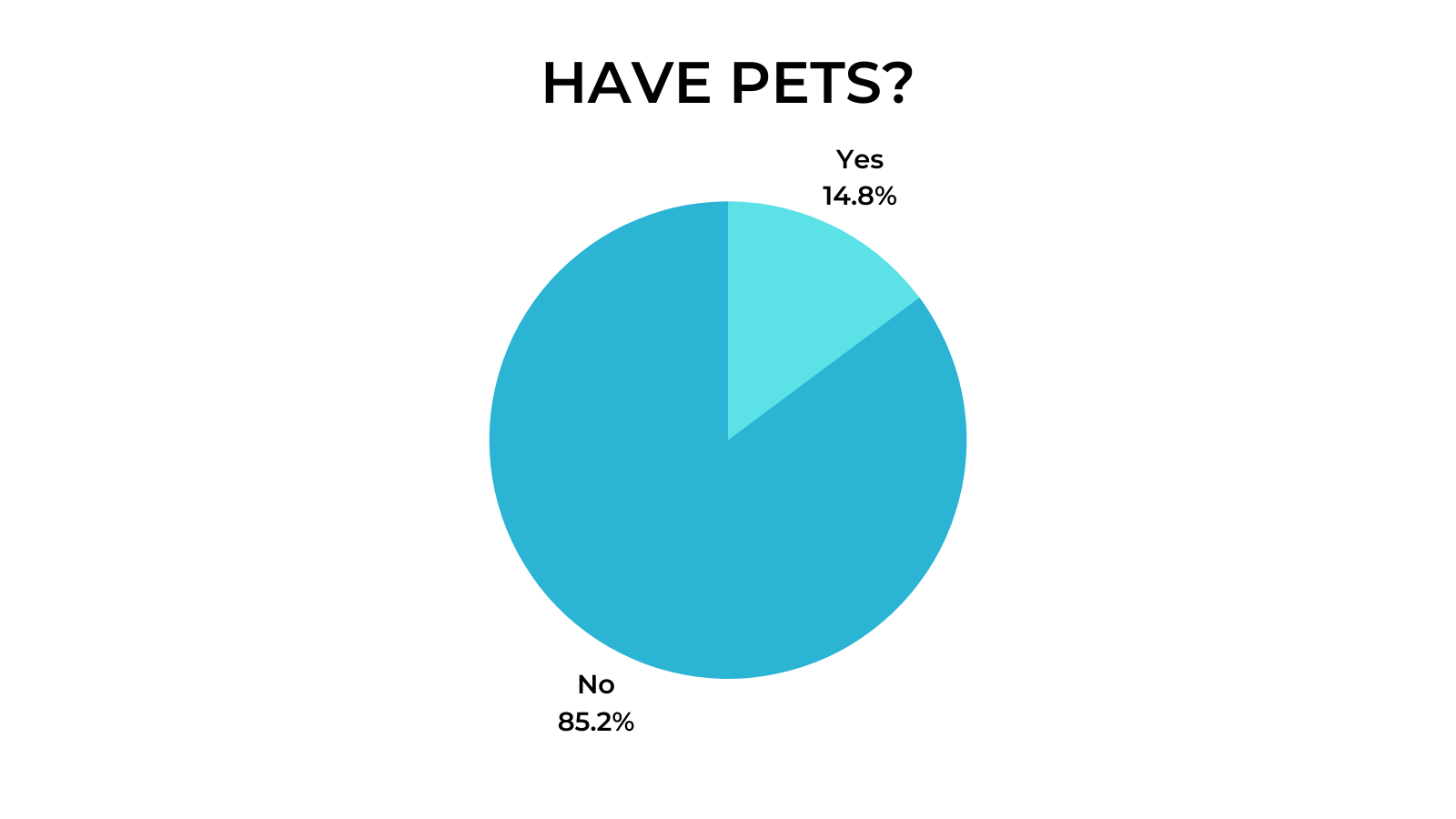
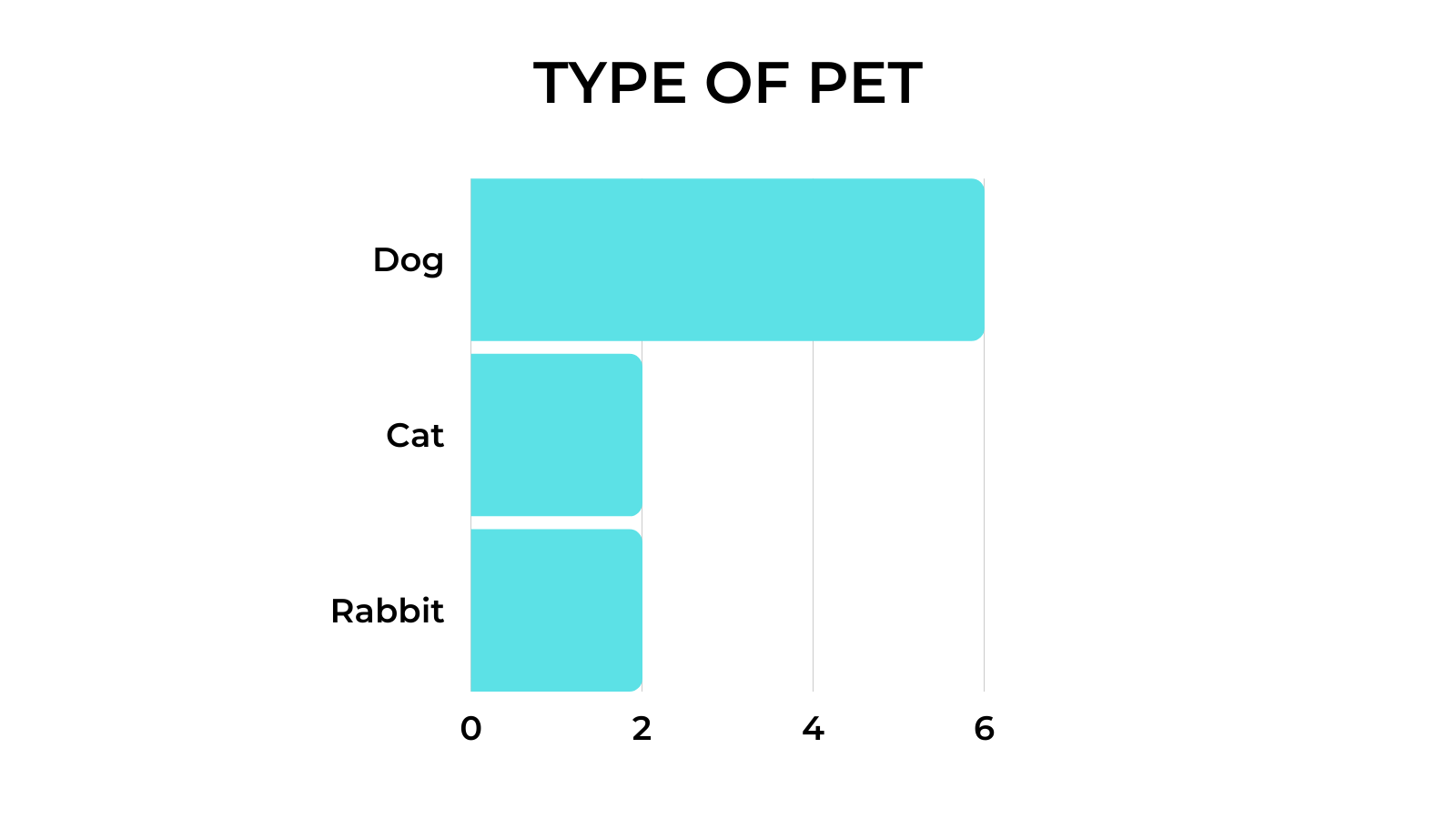
5) 1/3rd of individuals have been or are digital nomads & love travelling.

Work preference and finding remote roles
6) More than half of these individuals work independently (freelance or have their own company).
Only 17% of individuals work for established firms.

7) Personal network is the best way to find remote roles followed by asking your employer to turn your existing job to a remote position.
Only 24% of individuals found remote job portals to be useful.
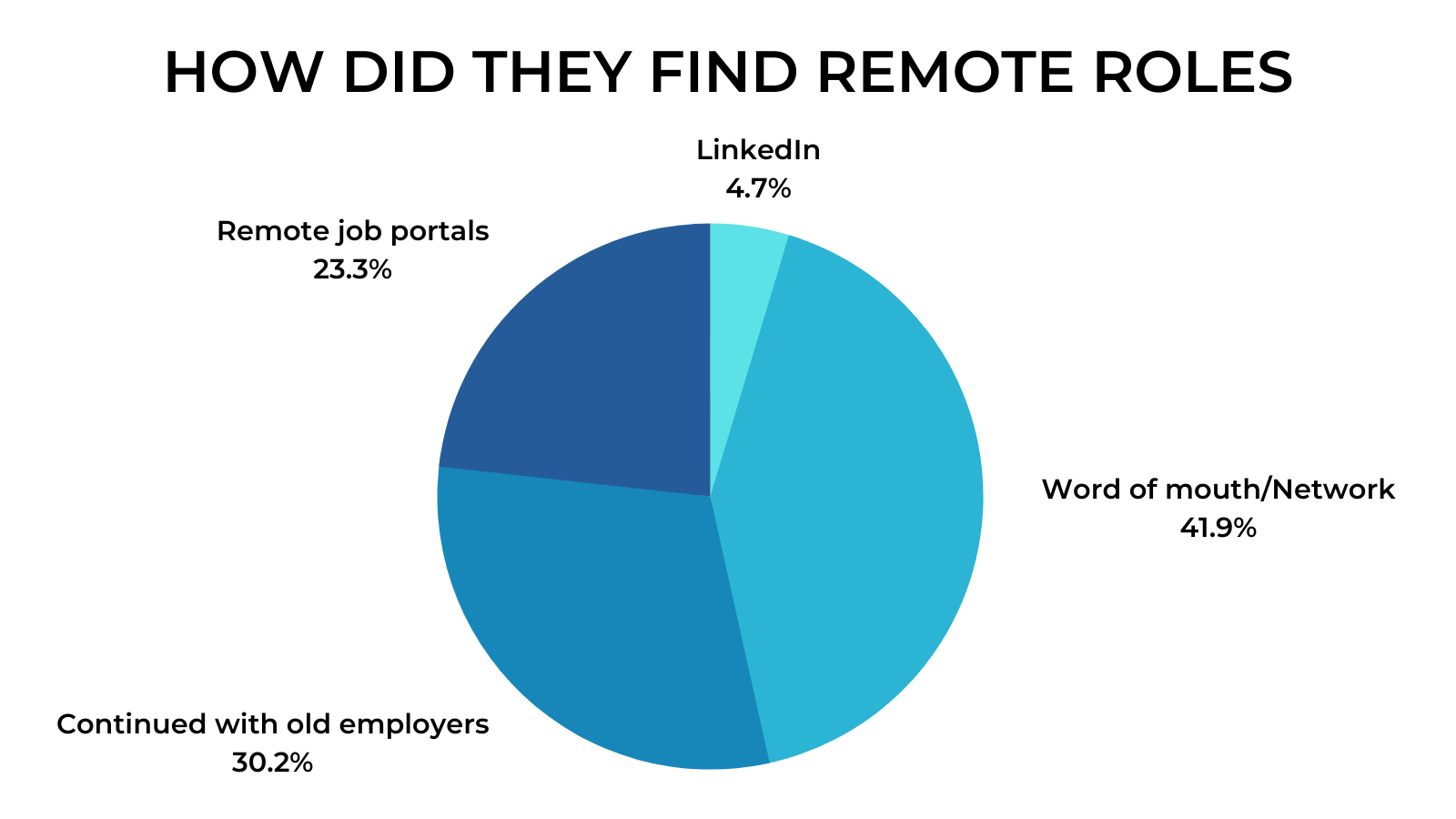
Transition to remote working
8) The initial phase of transitioning to the remote lifestyle has been the toughest challenge.
After the initial transition, remote workers keep battling against the challenges of switching off from work & lack of socialisation daily.

9) Naturally, more than half of individuals found the switch to remote working challenging.
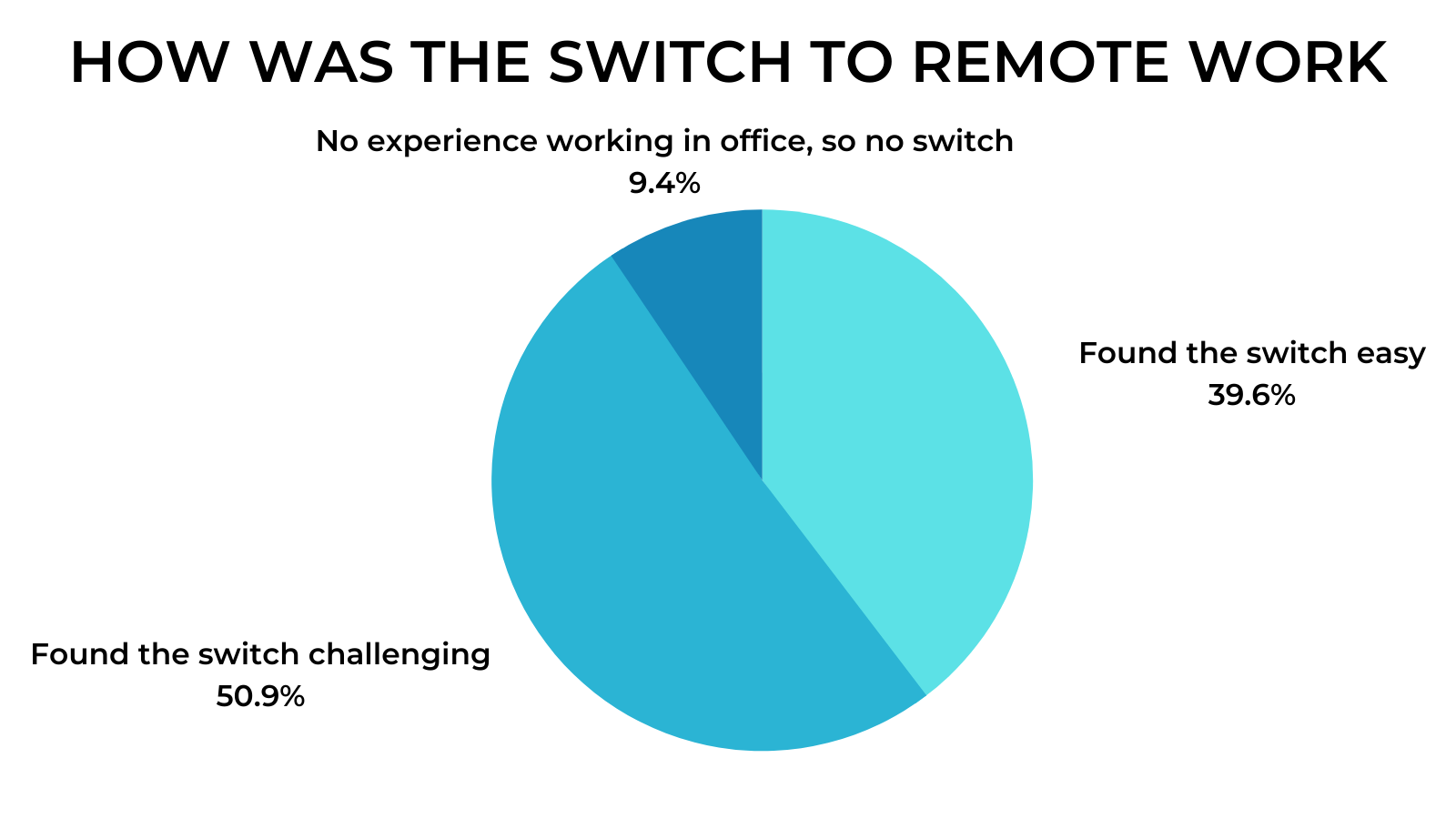
10) Surprisingly, 2/3rd individuals stumbled upon remote working and it was not a conscious choice.
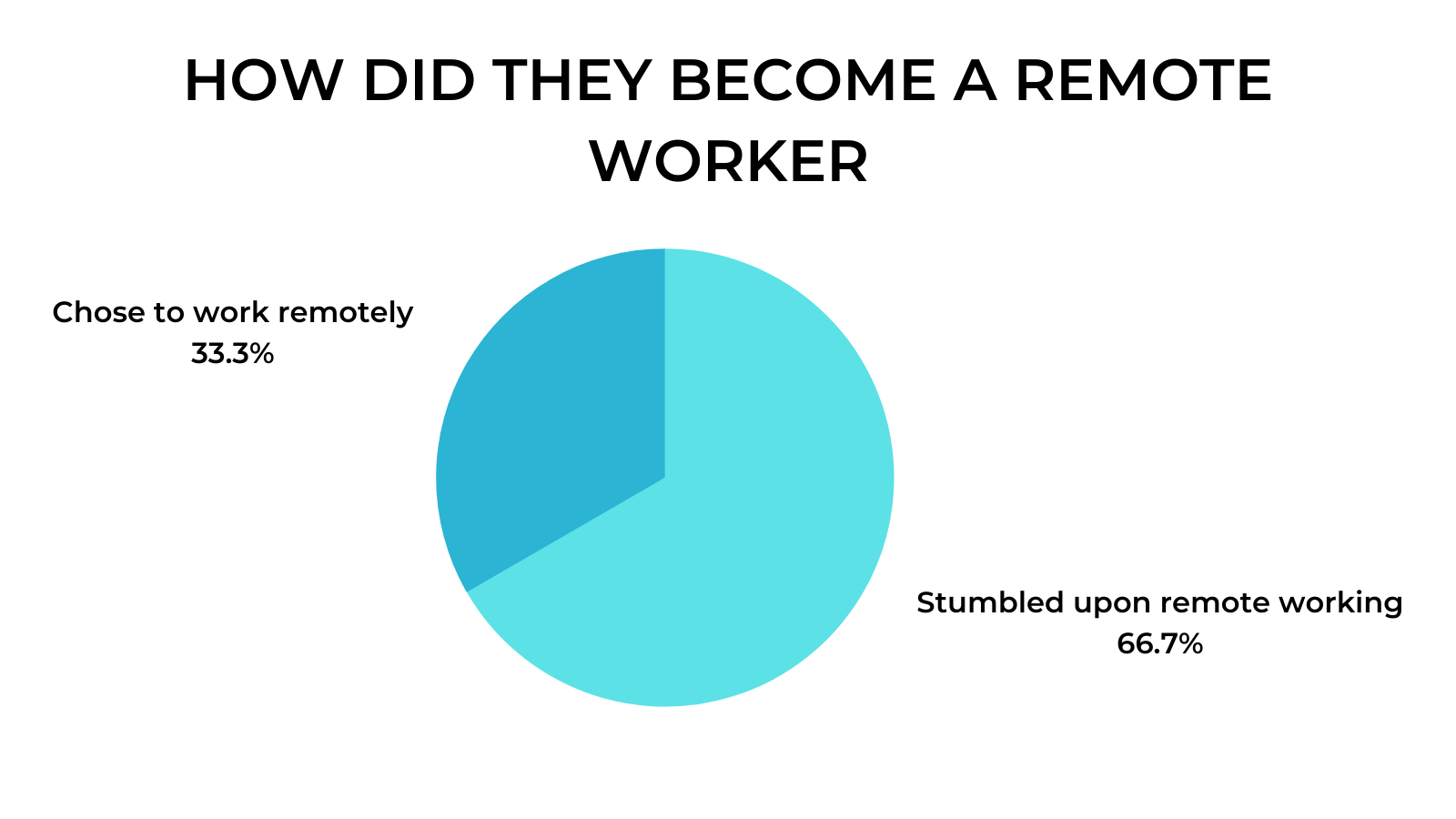
11) Regardless, ~70% were excited by the prospect of getting to work remotely and only < 4% were skeptical about it.
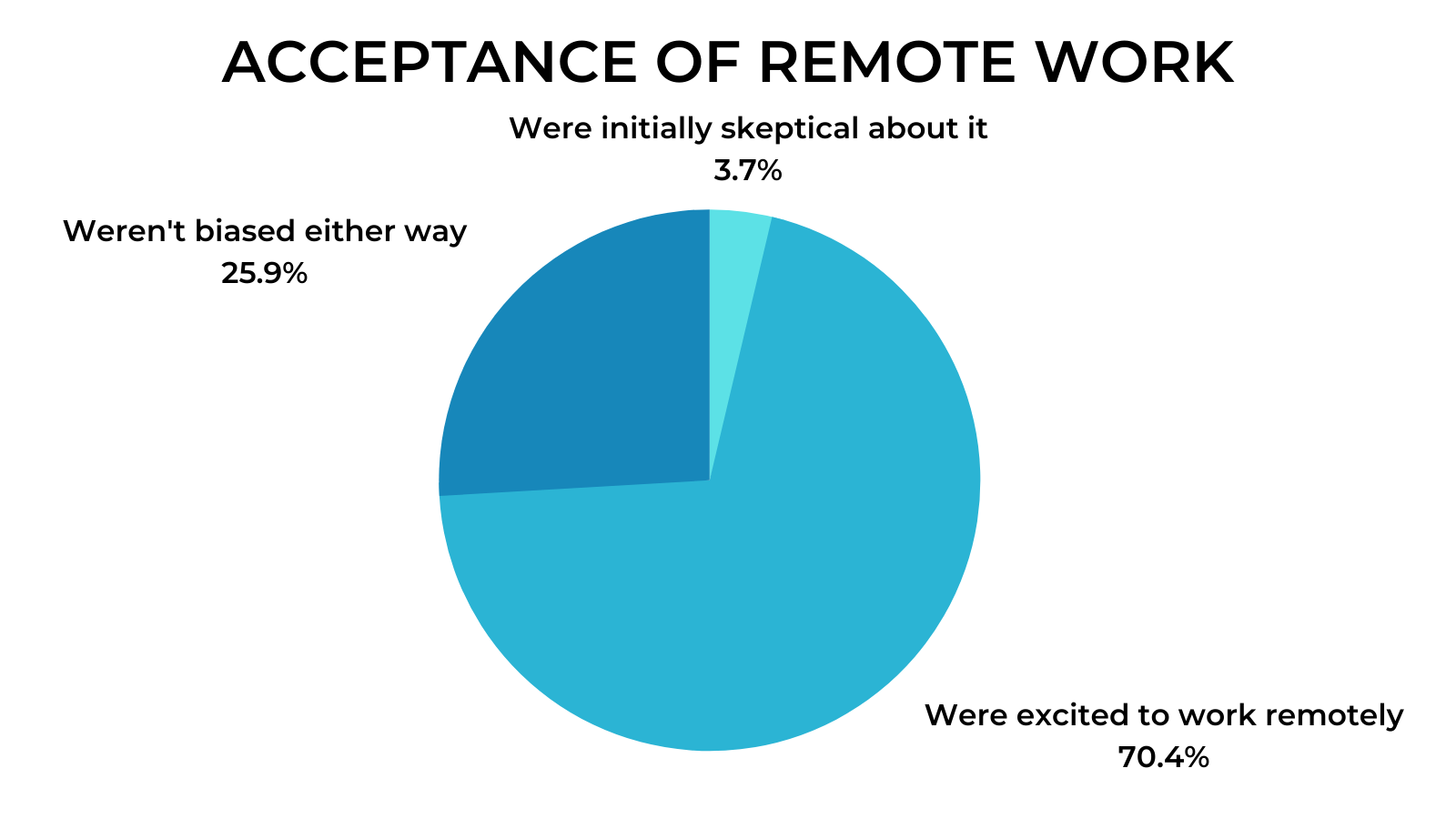
Mental and physical health
12) 17% individuals feel that remote work actually does wonders for mental health whereas an equal number feel it has a negative impact.
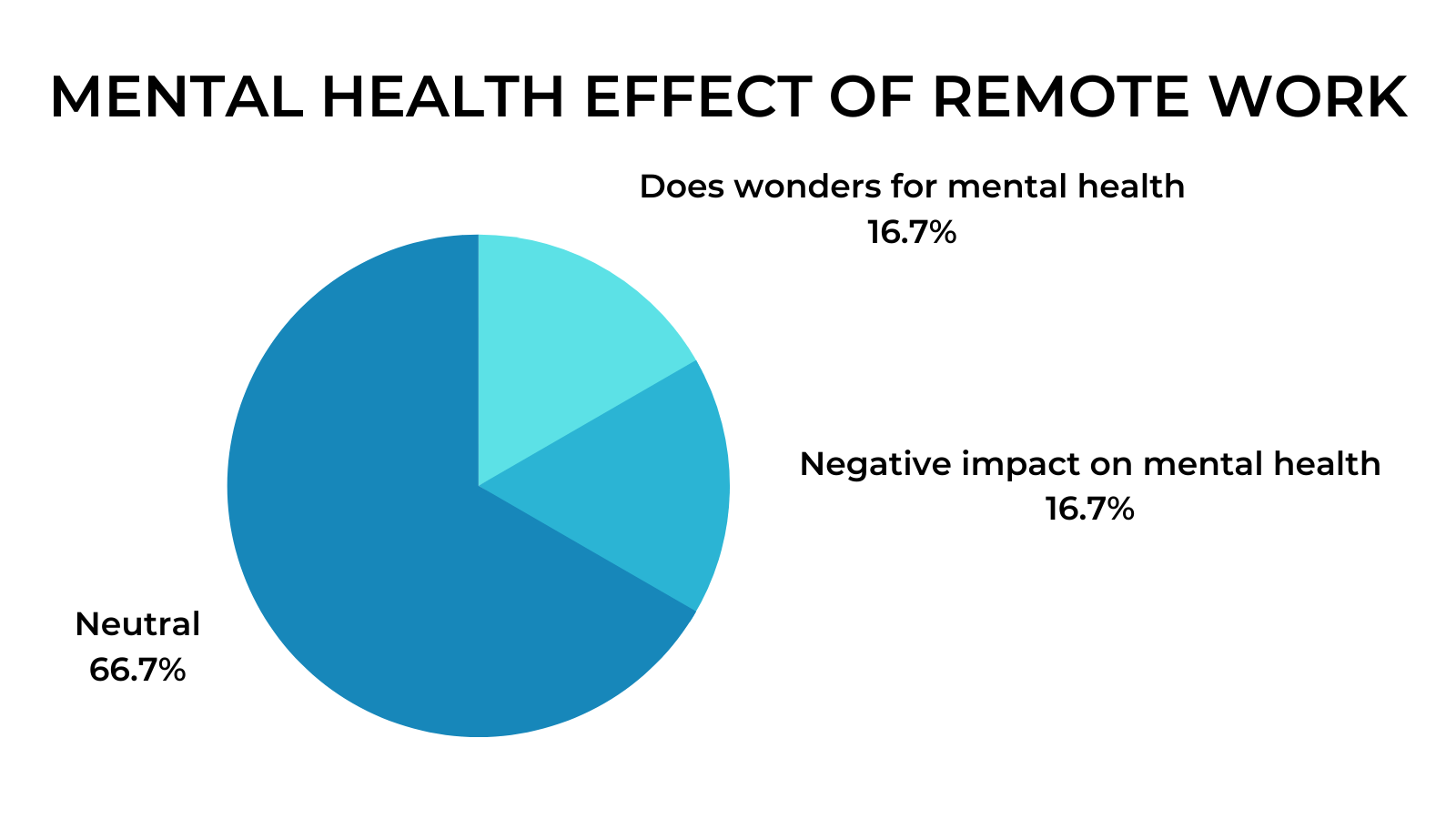
13) 1/3rd individuals feel that exercising regularly (with a proper workout schedule) is important for all remote workers and 4% individuals feel bas that they don't exercise enough.
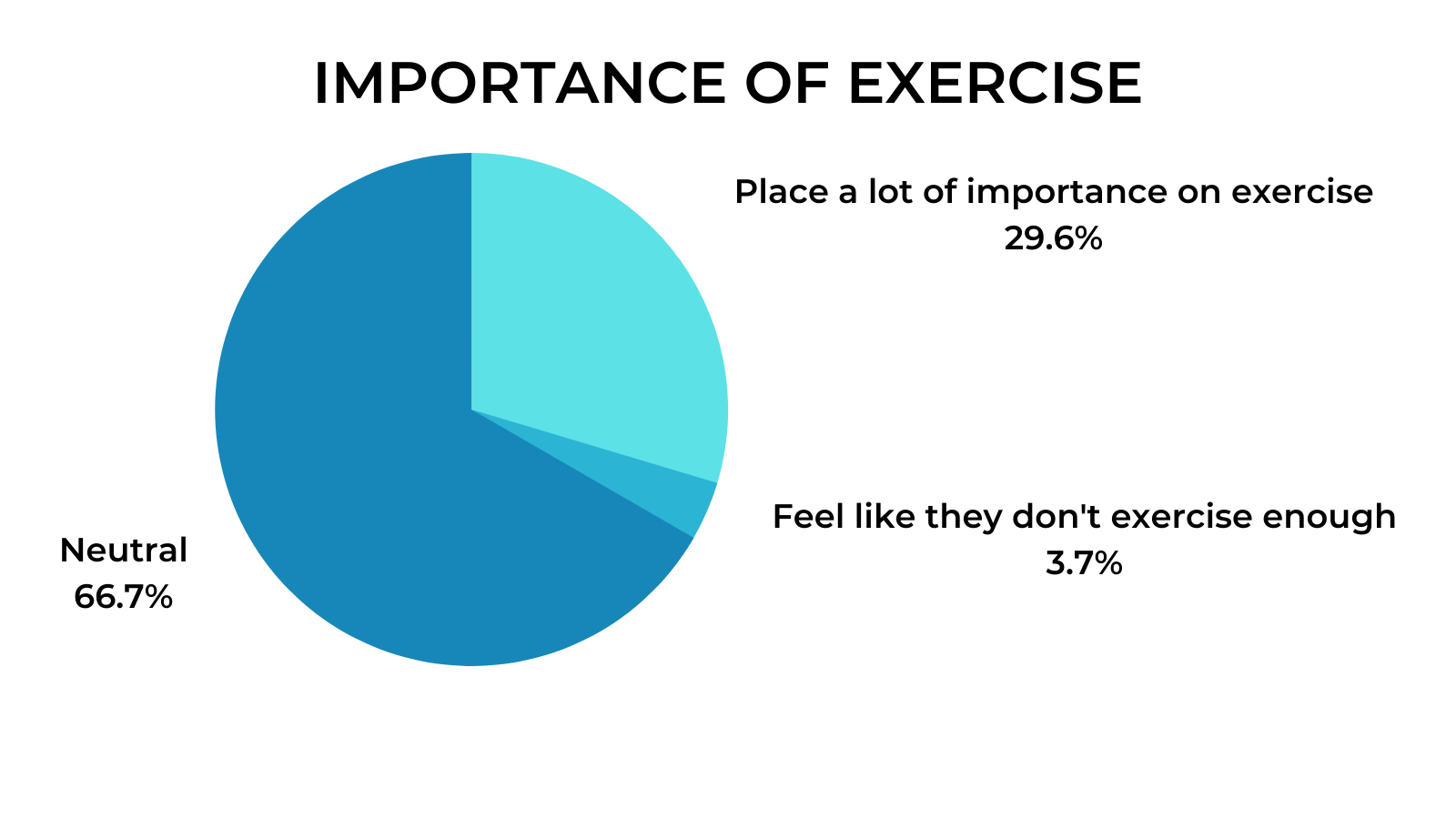
Best and worst things about remote working
14) Flexibility & freedom is the best thing about remote working for more than half of individuals.
13% love that they get to spend more time with family while an equal number love that they get to travel so much.

15) Loneliness & isolation is the worst thing about remote working for almost half of individuals while ~25% feel it is the inability to disconnect from work.

Tools, motivation to work remotely and views on future of remote work
16) Slack & Zoom are by far the most popular choice in remote working tools (used by > 50% individuals) followed by Google's collaboration products and specific choices like Trello, Grammarly, Basecamp, Spotify.

17) More challenging work or doing something they like remains the motivation to work remotely for ~25% of individuals while it is pursuing their passion for travel for ~17% people.

18) ~60% of individuals predict that there will be a significant spike in permanent remote working whereas ~25% feel there are still changes required for remote work to succeed at large-scale.
